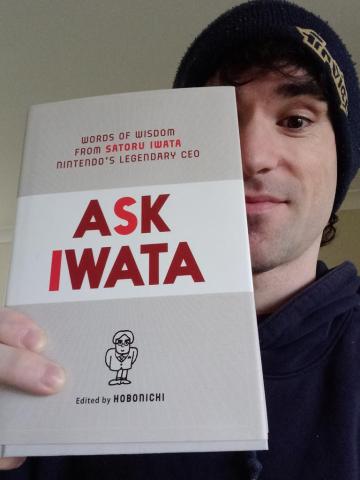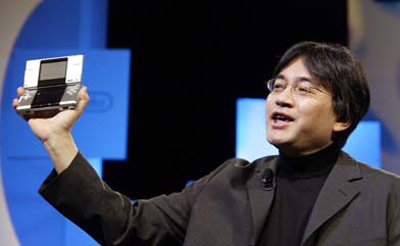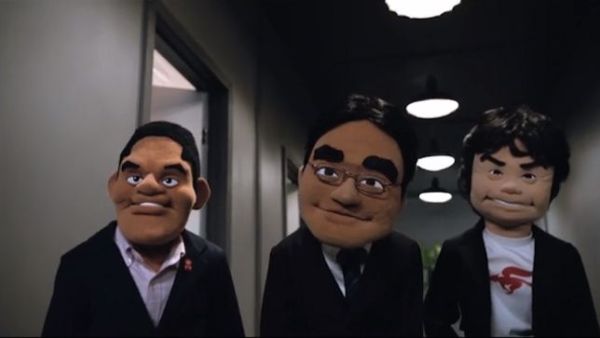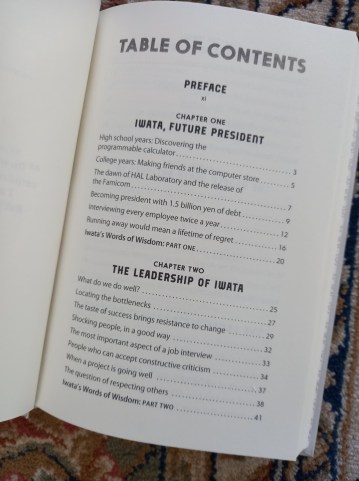It’s been six years now and I still remember the day he passed away. I was living by myself in a lonely rural town and stumbled on the news in a tweet when I got home. We’d heard that Iwata was sick but the severity of it was not clear until now. It was a massive shock. It felt like I’d lost a family member, except unlike my real parents, Iwata was actually a good person. He had something that I had rarely seen in adults and certainly not leaders. That missing thing was empathy. Empathy for his peers, empathy for his employees, empathy for gamers, and empathy for people who didn’t game. Empathy is one of the most important parts of being human, our species simply wouldn’t survive without it. Yet, it is barely taught or understood.

The fact that a CEO could joke around was unheard of, a sense of humour is not something you’ll read about in any business book. It is however, at the very heart of entertainment. Nothing could put a smile on someone’s face quicker than a joke and he knew this. He described his life goal not with profit incentives, but “putting smiles on people’s faces“. I never forgot that quote and it’s something that’s stuck with me. That’s the very definition of a good person, someone who makes the world better and not worse. I loved this man for breaking the “convention” drilled into me that successful people had to be soulless parasites. Satoru Iwata brought Nintendo to the peak of success with compassion, intelligence, vision, and understanding.
Iwata never got a chance to write a book, but contributed much wisdom over the years through his Iwata Asks interviews, speeches at gaming events, and Nintendo Direct appearances. There’s certainly enough wisdom and content out there to make a wholesome book, and the people of Hobonichi have put together this wonderful gem.

This book uses quotes of Iwata himself to craft a history in his own words, starting from his humble beginnings with the pocket calculator. I first heard about that story in his GDC speech from 2005 called “Heart of a Gamer” (still on youtube here, great watch) where he talked a bit about his background and the direction of the gaming industry. Looking back on this in 2021, it was immensely prophetic. Everything he warned us about games being “devalued” has happened, from the endless steam sales backlog to exploitative game design models. Meanwhile, Nintendo’s insistence on value is why their games can stay full-priced for a decade, for better or worse. They’re worth buying because they’re worth finishing, and that was the kind of product Iwata thought was worth creating.
It really feels like Iwata wrote the book, with his words given a coherent structure and context. It flows from his beginnings at HAL to his higher positions at Nintendo, complete with observations and experiences. There’s also a darker, sadder side to it where other Nintendo folk talk about the aftermath of his death and some of that made me sad. If you’re a more distant fan of gaming this won’t be a problem but for people who followed Iwata this part hits quite hard. There was a quote from Miyamoto about missing his best friend that made me cry.
The book offers more than just an insight into Nintendo and gaming. Iwata’s leadership skills are very rare for a CEO, being both humble and efficient at the same time. He goes into his philosophies of working with people and listening to every single person in the team. I’m not going to break down all the info in the book, but it’s something I hope every CEO reads to understand that they don’t have to be assholes to be successful. Satoru Iwata was not just a great leader, but a great human being who saw everyone as his equal. He tried to learn from his staff and listen as much as possible.
Iwata’s unique way of thinking directly led to two of the most successful products in gaming history, the Wii and the Nintendo DS. It’s incredible to think of the impact made by the DS in particular. When it launched, gamers thought touch screens were stupid because they weren’t standard. I distinctly remember this transitional period, because that was when I first started visiting forums on the internet. Nintendo copped enormous backlash and hate in the gaming press at the time for trying something different, because it wasn’t the gaming they knew. “These aren’t real games!” people would protest on insulated message boards.

A lot of people look back on the iPhone as the biggest tech advancement in modern history, but Nintendo DS paved the way for handheld touch screens 3 years earlier, at a time when it faced heavy resistance. They did all the hard work for Apple by pushing through the public consciousness and committing to the idea at a time when nobody else would. Today, the once controversial input devices found in the DS and Wii have become industry standard. It’s hard to find a single handheld tech device without either a touch screen or motion sensor, even both.
To divert from gaming again, this book is also a wonderful self-help resource as Iwata describes his theories on what motivates people and how to enjoy what you’re doing. Lack of motivation could have sunk HAL Laboratories (creators of Kirby and Super Smash Bros.) when they were a billion yen in debt, but they managed to get themselves out of it. When Nintendo hit a slump with the Wii U, Iwata himself took a paycut so employee morale stayed high. He didn’t lay anyone off or blame anyone. I can’t think of another CEO in history who would do this. They rode through the tough days of the Wii U to reach the incredible highs of the Switch.
This is where I’m going to get dark again, and say compassion was also what led to his ultimate downfall. Iwata cared so much that it killed him. The reception to Nintendo at E3 2015 was downright toxic and abusive from so-called fans. I felt the exact opposite, because Splatoon had just been released and I was loving it. They didn’t have too much to show because Splatoon just came out, and Nintendo Switch was just around the corner, but they still put on an amusing puppet presentation with some tail-end Wii U games. It was received so poorly that Iwata felt the need to come out with a public apology. We forgive you, Iwata.

It breaks my heart that Iwata never got to see the enormous success of Nintendo Switch and Breath of the Wild which he was very closely involved with. Not just that, but all the work in the Wii U era translated to a very strong game library for Switch, and paved the way for the hardware design transition into a handheld and console hybrid that brought more people and ideas into one place. The fruits of his ideas will still be felt for decades.
He also talks about how to spot trends in the world. There’s a remarkable conversation in the book with Iwata and Itoi (EarthBound creator) about how you don’t always have to see into the future, you simply have to see what’s in front of you. An alarming amount of people can not do that. Most of the wisdom in this book is not that complicated, just simple and grounding.

The book is available as a digital purchase or hardcover physical book, with no current paperback version. I think this hardcover suits it perfectly, as the book isn’t too cumbersome at a modest 153 pages. I wish there was more to be honest, but this book has a very comfy and organised feel about it. Chapters are spaced apart nicely and the font is clear and cute. The hardcover and pages have a pleasant smell, more like wood than plastic or ink. It feels like you’re in a library rather than an office. I recommend removing the outer sleeve for a smoother experience while turning the pages, to increase your quality of life. Iwata would be proud of the accessibility.
The biggest thing I took from this book was the personal awakening as a Nintendo fan and creative individual myself. I’ve been reading dozens of books lately about self-improvement, but nothing really hit me like this book. It reminded me of my own core values and passions. Rest in peace, Iwata-san. Your legacy and compassion lives on in our hearts and minds, and will reach many new people through this book. Thank you for all the wisdom, and more importantly the smiles over the years. There’s nothing more valuable than a smile.


Nice article, man.
LikeLike
Very beautiful article. It’s sad how no one appreciated Iwata until after he died. I remember when people wanted him fired during the Wii U days. And it’s also sad how investors punish him for sacrificing his paycheck in half and taking the burden and being an amazing leader. While Kohtick lays off many people and employees and gets rewarded for it and Sony doesn’t get accused for laying off 10k employees and shutting down a building or for basically spurning the Japanese market.
Iwata was a rare breed of people who were both president and game developer. He cared for his employees and treated them like humans beings.
Also. People seem to still get confused by the whole value of gaming Iwata was trying to push and show.
LikeLiked by 1 person